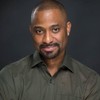This is an opinion piece by Khalid Pitts, principal at the consulting firm Democracy PartnersWhether you're talking urban cities or rural counties, young adults make up a significant portion of a community. It's in these communities where they can have the most impact through a number of efforts, including citizen lobbying, raising their voices in the media, and localizing their power.As citizen lobbyists, millennials can organize and bring their collective opinions directly to elected officials in their offices in session, on recess, and over the summer. Often, we feel congressmen and women will only listen to constituents in their Capitol offices, but constituents can relay opinions by phone, or via Twitter and Facebook. These same tools can be used to self-organize with their friends or classmates, or they can turn to grassroots organizations like People's Action or the Center for Popular Democracy who can lend organizing support, resources, and information.Every young person has a story to tell. While the New York Times, USA Today and Washington Post are viewed as national papers, and cable newscasts are designed to carry national news 24/7, local and community papers and television media outlets are equally as important to telling the story. Because of financial constraints, they are harder pressed in getting the story. The trick is getting that story in front of the right person, and in the right venue so that it can be told in a compelling way. Organizations like Generation Progress have developed toolkits for millennials to engage the media in a serious and professional way.In his last public address, President Obama remarked to young people about engaging in the political process: "don't boo, vote." I am amending that to say "don't just march, run." Localize your power and run for elected office. Holding an elected position is a powerful way to make change in your community and be an inspiration to others. I can speak to this firsthand, having run for city council in my home of Washington, D.C., Bruce Franks Jr. can speak to it as well. In 2014, Franks first became engaged by marching in Ferguson following the shooting death of Michael Brown. Today, he represents the 78th District of Missouri as a state representative, finding solutions to the very issues that inspired him to march. And organizations like Emerge America are helping young women run for offices from the local water or school board to Congress.Finally, though the scale of the People's Climate March has national -- even global -- intentions, progress cannot be reached without the local implementation of green economic investment. As the Trump administration rolls back vital clean air and public health protections, and attempts to turn back the clock on climate action, it will be up to cities to accelerate the transition away from dirty fuels to clean energy. It will be up to young city and community leaders to take a leading role in shaping the direction we need to take on clean air and clean energy. Organizations like the Sierra Club's Ready for 100 Campaign are working with cities and towns across the country to come up with solutions that can help them run on 100percent clean renewable energy, and help push the country to that goal by 2050.The late novelist, playwright, and poet James Baldwin once said, "Not everything that is faced can be changed. But nothing can be changed until it is faced." For far too many decades, older generations of Americans have not faced the reality of climate change. The world is facing a tipping point of consequences for that decision. It is up to a younger generation to face that challenge head-on, and make the change to create the solutions for a 21st century green energy economy.
